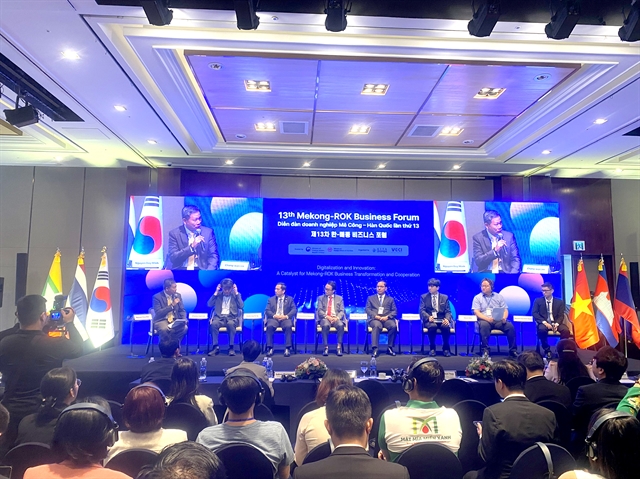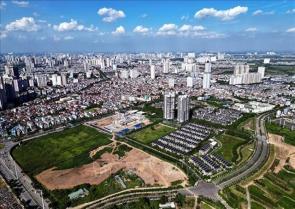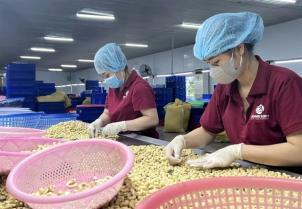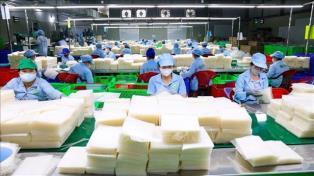The 13th Mekong - Republic of Korea Business Forum held in HCM City on Monday aimed to boost economic cooperation, foster digital transformation and innovation, and shape regional supply chains between the ROK and the Mekong region.

HCM CITY — The 13th Mekong - Republic of Korea Business Forum held in HCM City on Monday aimed to boost economic cooperation, foster digital transformation and innovation, and shape regional supply chains between the ROK and the Mekong region.
The forum, themed "Digitalisation and Innovation: A Catalyst for Mekong-ROK Business Transformation and Cooperation", was organised by the Ministries of Foreign Affairs of Việt Nam and RoK.
This is the third time the event was being held in Việt Nam, and was attended also by the four other Mekong countries, Cambodia, Laos, Myanmar, and Thailand.
Võ Tân Thành, vice chairman of the Vietnam Chamber of Commerce and Industry (VCCI), said the annual forum, which began in 2013, had helped foster a network for investment in commercial projects and strengthened the Mekong-Korea partnership.
Currently the region faces both opportunities and challenges, the latter since the global economy is volatile and supply chains are under pressure in recontructed, according to Thành.
This year's theme, digitalisation and innovation, is key for countries and businesses in the region to overcome challenges and seize opportunities for sustainable development.
The event is also linked to the Việt Nam government's policies on developing science and technology and innovation and making the private sector a key driver of the economy.
Mekong countries have a pressing need to enhance competitiveness, diversify supply chains, develop the digital economy, and strengthen cooperation.
The RoK's strengths in IT, innovation, smart logistics, and e-commerce are valuable resources that the Mekong countries want to share and cooperate in.
According to Trần Thị Diệu Thúy, vice chairwoman of the HCM City People's Committee, cooperation between the Mekong countries and South Korea for promoting digital transformation, developing smart supply chains and encouraging innovation is not only a short-term necessity but also a foundation for long-term breakthroughs.
A representative of the Ministry of Industry and Trade of Việt Nam mentioned that smart logistics is an inevitable trend, significant for the Mekong-Korea sub-region.
Collaboration among the State, enterprises, research institutes, and international organisations is needed for developing a smart, green and sustainable logistics ecosystem.
The country is formulating a Logistics Services Development Strategy for the period from 2025 to 2035, focusing on collaboration in the advancement of smart logistics.
The RoK also introduced some of its digital transformation models, including uTradeHub, a national e-commerce platform built with government support that aims to reduce costs and boost export competitiveness by digitising trade transactions and documents.
The hub operates as a "Single Window" system, helping businesses handle trade, customs, logistics, and financial procedures online.
Experts also introduced AI and blockchain as logistics solutions.
AI is presented as a solution-oriented tool for logistics that processes data, does analyses and handles forecasting. It can optimise transport costs, particularly by factoring in weather, traffic and time.
Meanwhile, blockchain enables the real-time transfer of data from the port of origin to the final destination, minimising costs and errors for import and export investments.
It can also integrate with electronic systems to verify documents and rebuild data in a short time.
Based on their geographical advantages and development visions, each country in the region is demonstrating its role in becoming a transportation hub.
Myanmar is becoming an important gateway connecting the region with India.
Laos can be an inland hub with railway lines linking to many countries, especially China.
Cambodia can become a waterway hub with its dense and highly connected port network, while Thailand can contribute as a technology partner for the Republic of Korea and the region. — VNS




